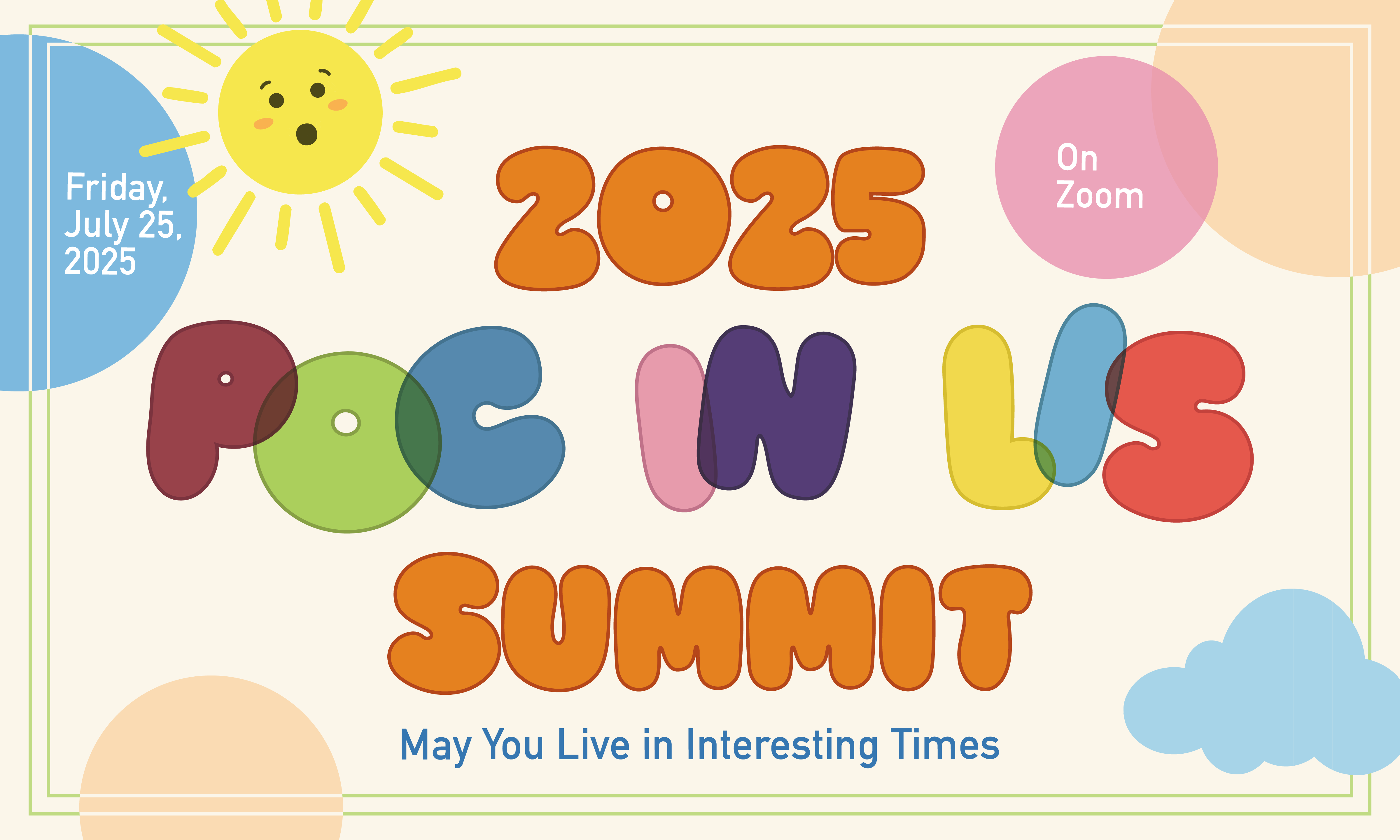Event Type
Presentation
Location
WHH 117
Track
Accessibility & Barriers to Access in Libraries, Archives, and Museums
Start Date
13-7-2018 11:00 AM
End Date
13-7-2018 12:30 PM
Description
We are two science and engineering librarians at USC who studied partnerships, accessible instruction, and assistive technology within the USC campus. As we conducted research, we were intrigued by the conversations we had with librarians, staff, and students. The invisible injuries to community members with disabilities and resistance to change from leadership were eye-opening for us. Despite diversity being a strategic vision in many universities, discussion of disability is still often pushed to the margins. Uncovering oppressive structures in institutional settings takes not only intellectual work but also legwork, active listening, and openness to unexpected discoveries. Disrupting dominant narratives can be a slow and plodding process. Finding allies, challenging our own biases, and persisting past setbacks can move conversations forward and bring positive change. We will share two stories about accessibility loosely organized around the theme of discovery.
- How did we find the assistive technology in the library?
- How does library instruction relate to accessibility?
Session 1A: Discovering Accessibility Stories
WHH 117
We are two science and engineering librarians at USC who studied partnerships, accessible instruction, and assistive technology within the USC campus. As we conducted research, we were intrigued by the conversations we had with librarians, staff, and students. The invisible injuries to community members with disabilities and resistance to change from leadership were eye-opening for us. Despite diversity being a strategic vision in many universities, discussion of disability is still often pushed to the margins. Uncovering oppressive structures in institutional settings takes not only intellectual work but also legwork, active listening, and openness to unexpected discoveries. Disrupting dominant narratives can be a slow and plodding process. Finding allies, challenging our own biases, and persisting past setbacks can move conversations forward and bring positive change. We will share two stories about accessibility loosely organized around the theme of discovery.
- How did we find the assistive technology in the library?
- How does library instruction relate to accessibility?




